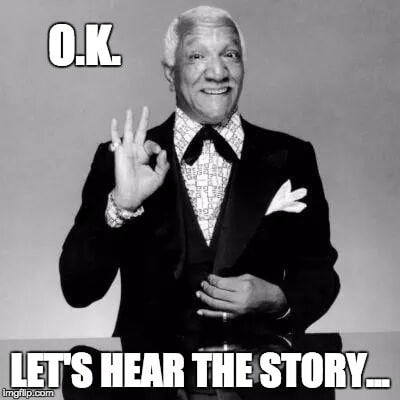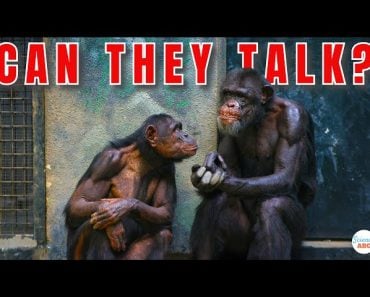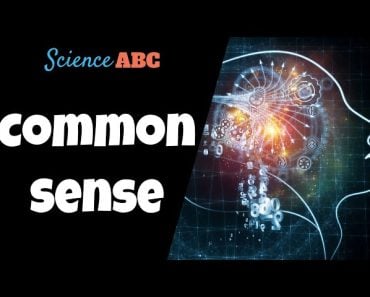Table of Contents (click to expand)
The word “OK” originated as a joke in the Boston Morning Post in 1839. It became famous as a campaign slogan for Martin van Buren’s presidential campaign, and was then repurposed in hundreds of different ways.
In our ultra-modern, fast-paced world, it seems impossible for someone to write a text message or an email without abbreviating a word or using an acronym instead of a full phrase (LOL, g2g, brb, ROFL, TTYL… just to name a few). There simply isn’t enough time to write things out or even say them out loud!
However, for those who think this is a modern phenomenon, I have some bad news for you… this tradition of cleverness (or laziness) dates back hundreds of years, if not longer. “OK”, one of the most ubiquitous words in the English language (even boasting a universal hand symbol), has tangled origins that remain hotly debated to this day. So… what’s the real story of OK?

Short Answer: It began as a joke, became famous as a campaign slogan, and was then repurposed in hundreds of different ways. The full story is also very satisfying…
Recommended Video for you:
The Origin Of OK
This tale begins more than 175 years ago, in 1839, in the Boston Morning Post, when a particularly clever editor included it in an article about the Anti-Bell Ringing Society. In one particular line, he said “o.k. – all correct -“, which does look a bit strange, given that all doesn’t begin with “o” and correct doesn’t start with “k”. However, this was a common thing back in those days, when alternative spellings were used in abbreviations as a joke. “No go”, for example, was abbreviated to k.g. (“know go”). That editor was simply making a joke, and most people would have forgotten the phrase, or it would have fallen out of style, had this editorial piece not preceded the presidential election of Martin van Buren.
For those who aren’t fresh on their 19th century presidential trivia, Martin van Buren had a nickname – Old Kinderhook – as he was a native of Kinderhook, NY. Some of van Buren’s rabid supporters decided to form their own club to support their candidate, and using his initials as a basis, they formed the O.K. Club.
Given that this was only one year after o.k. had a passing brush with fame as a pop culture abbreviation, the two applications became intertwined and indistinguishable during the campaign. Opponents of van Buren used the initials in less than complimentary ways, such as “Out of Kash”, “Orfully Confused”, and a number of other less-than-brilliant mudslinging. The pundits and critics of the day had their fun with the phrase, injecting O.K. into the national vernacular, although with a bit more tact than this…
However, the unclear definition of what it meant, ranging from “all correct” to a tongue-in-cheek criticism of someone’s abilities/intelligence, lent it a certain intrigue that helped it stick in people’s mind – and mouth.
From Tongue To Telegraph
Just as the timing of the newspaper piece lined up nicely with van Buren’s presidential run, it also fit in historically well with the invention of the telegraph. Given that any message was costly and time intensive, a simple “reply message” was required, and early operators grasped onto O.K. as a sign that the transmission had been received and that it was “all correct”. This use of O.K. lasted far longer than van Buren’s nickname, or a passing joke by an editor, and became a common parlance in telegraph operators around the country.
That same telegraph transmission spread O.K. outside America and to the English-speaking world as a whole, and from there, the simplicity of the term, and its fluid meaning, appealed to countless other cultures. As a simple word for affirmation, a way to express tepid enthusiasm, or even a means of insulting something with a bit of tact, O.K. is one of the most versatile words in the English language – and beyond. Just think about the flexibility of the word (and mind, these are only a few of the seemingly endless uses):

“Okay! Let’s go!” – Excitement
“That meal was okay.” – Neutrality
“Okay… I guess I’ll go.” – Reticence
“This looks okay to me!” – Approval
See? Pretty useful, huh?
It’s “O.K.” To Cross Language Barriers
Once the word became an international call sign, it gradually slipped into common speech, and clever humans even came up with a hand gesture to accompany it. For some reason, however, many different groups of people have staked their claim of possession on it, and in some cultures, people date back the use of okay hundreds of even thousands of years. Whether there is any validity to this, or just cultural amnesia, still remains unclear, which is why O.K. remains a point of discussion and fascination for many scholars and those with lots of time on their hands.
To give you some idea of the confusion centered around this word, here are a few examples of other cultural explanations and origin stories for this hotly debated word….
German – Ober-kommando (O.k.)
Chocktaw – okeh
Latin – omnes korrecta
Scotland – och aye
Greek – ola kala
Civil War – soldiers carrying signs saying “Zero (0) Killed”
Whatever explanation you want to believe, suffice to say that it is impossible to get everyone to agree on history, which is why etymology (the study of the origin of words) is such an intriguing field… for some people. All signs point to the Boston Morning Post and Martin van Buren explanation as being true, since it is historically verifiable, but who knows. As long as you’re O.K. with using it every day, do you really care where it actually came from?













